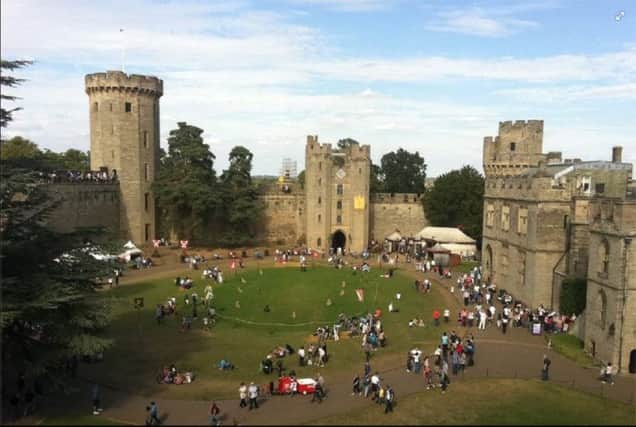Warwick in top 10 most misspelt locations in the UK


According to Travelodge, British adults struggle to spell popular UK locations correctly with Warwick the 10th most misspelt.
Edinboro, Landan. Tourkey and Barth are just a sample of the booking location entries www.travelodge.co.uk receives on a daily basis from people in all corners of the UK.
Advertisement
Hide AdAdvertisement
Hide AdEvery week, more than one million people visit the Travelodge website looking to book a room at one of 514 UK Travelodge hotels and following a booking audit it has been revealed that around 20% of location entries are misspelt.
The UK’s capital cities: London, Edinburgh and Cardiff are amongst the top 10 most popular locations that are regularly misspelt, with Edinburgh taking the number one position. London is the second most popular location spelt incorrectly and Cardiff the eighth most popular misspelt location.
Edinburgh is most often spelt as: Edinboro, Edinburg and Edinbough. London is entered as: Landan, Londan and Loodon whilst Cardiff is spelt as: Kardiff and Cardyff.
Warwick made the top 10, though, and is commonly misspelt Warrick.
Advertisement
Hide AdAdvertisement
Hide AdOther UK locations making the top 10 list of misspelt locations include the popular seaside resort on the English Channel in Devon, Torquay which is often spelt as: Tourkey and Tourkie. Nicknamed the Great Border city, Carlisle also makes the top ten listing of misspelt locations as it often spelt as: Carlilse and Carlyle.
In response to the growing problem of misspelt UK locations, Travelodge has launched a function on its website to predict the location of where people want to stay. From as little as four letters, the Travelodge search box will showcase matching names and Travelodge hotels as a drop down option – making it easier for correctly spelt location entries.
A spokesman for Travelodge, Shakila Ahmed, said: “Every week, more than a million people visit Travelodge.co.uk, looking for a great value hotel room for either a business or leisure stay. Interestingly around 20% of these visits include a search containing a misspelt UK location.
“The reason for this could be speed of typing or it’s more likely to be that people are spelling a location as they think it’s pronounced. Some place names may be a preservation of an old spelling that made sense at the time the place was named but has little bearing on life today. The spellings could represent a pronunciation from any century from 1066 onwards. Our enhanced location prediction search should eliminate this problem and speed up the booking process.”